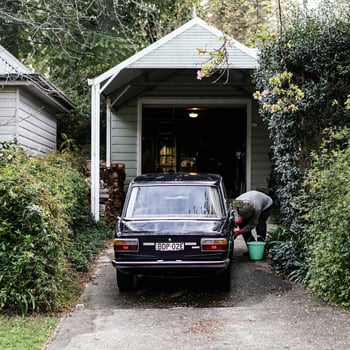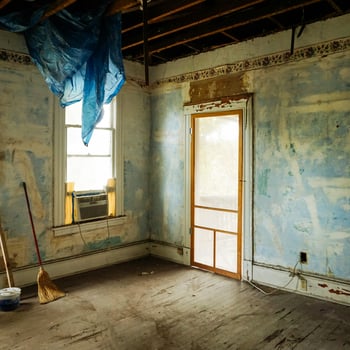Resources
First-Home Buyer Mistakes, And How to Avoid Them

I remember my first home hunt: after saving for years, I finally spotted one ticking most boxes, until adrenaline kicked in and I nearly overpaid, only to be relieved later I missed out. Buying your first home is a rollercoaster, especially in markets like Sydney (median $1.4M) and Newcastle ($900K and rising). In 2025, competition is fierce, and small missteps can cost tens of thousands. Let’s dive into five common pitfalls and, more importantly, how you can sidestep them to turn your first purchase into a wealth-building victory.
1. Falling in Love with the Wrong Home
Why it happens: Emotions run high when you envision your life in a new space. That emotional attachment can blind you to structural flaws, overvaluation, or future resale challenges.
The risk: Overbidding by 5–10% above market value, leading to instant equity wipeout once you factor in fees and holding costs.
Real-World Example: A Sydney couple bid $100K over reserve on a $1M Bondi unit because they ‘felt at home.’ Post-purchase, they discovered $6,000/year in strata fees and costly structural repairs, draining both savings and peace of mind.
Avoidance Strategy:
- Set a clear budget and criteria (location, growth potential, target value zones) before you start.
- Establish a firm walk-away price based on recent comparable sales (CoreLogic Australia).
- View at least 5–7 properties to reduce bias and maintain perspective.
Pro Tip: Partnering with a Buyer’s Agent brings data-driven clarity and keeps your heart in check.
2. Ignoring Value-Add Potential
Why it happens: First-home buyers often gravitate toward turnkey properties, fearing renovation hassle.
The risk: Missing out on 10–20% equity uplift that well-planned cosmetic or structural upgrades can deliver (Domain Renovation Report 2024).
Example: In Newcastle, one buyer passed on an $800K Mayfield fixer-upper. Another invested $50K in renovations and sold for $1M within 18 months, a $150K gain.
Avoidance Strategy:
- Target suburbs known for gentrification (e.g., Broadmeadow, Wallsend).
- Commission pre-offer inspections to accurately budget for upgrades.
- Factor renovation scope into your finance pre-approval (allowing for tradespeople quotes).
Pro Tip: We connect you with trusted tradies and help architect cost-effective floorplans for maximum return.
3. Trusting the Wrong Advice
Why it happens: Family, friends or online forums rarely have the full market picture, often biased or outdated.
The risk: Acting on incorrect guidance leads 25% of first-home buyers to overpay or choose poor locations (REIA First-Home Buyer Survey 2023).
Example: A Parramatta buyer followed a forum tip and spent $900K on a unit that grew just 2% in a year. Meanwhile, a $950K house in Fairfield appreciated 7% (CoreLogic 2024).
Avoidance Strategy:
- Rely on independent Buyer’s Agents whose sole focus is your outcome.
- Cross-check advice against two trusted data sources (ABS, CoreLogic).
- Attend industry webinars and read formal market reports rather than forums.
Pro Tip: My recommendations are underpinned by CoreLogic trends and on-the-ground intel, tailored to your goals.
4. Overextending Your Finances
Why it happens: Lender approvals can tempt you to stretch beyond comfortable repayment levels, especially against a backdrop of low rates.
The risk: Rate rises and unexpected expenses can turn your dream home into a financial burden, forcing distressed sales.
Example: A Newcastle couple maxed out for a $900K home, leaving zero buffer for rate hikes. When rates jumped 0.5%, they defaulted and sold at a loss.
Avoidance Strategy:
- Stick to a repayment-to-income ratio below 30% (RBA guideline).
- Stress-test your budget for +2% interest rate scenarios.
- Maintain an emergency fund equal to 3–6 months of repayments.
Pro Tip: We curate property options that align with your budget and lifestyle, keeping long-term affordability front and centre.
5. Skipping Due Diligence
Why it happens: In a fast-moving market, fear of missing out can rush you past crucial checks.
The risk: Undisclosed structural issues, zoning complications or upcoming body corporate levies can cost tens of thousands post-settlement.
Example: A Sydney buyer settled on a $1.2M Surry Hills flat without a strata report, only to face a $30K special levy for roof repairs.
Avoidance Strategy:
- Obtain building, pest and strata reports before exchange.
- Review council planning and zoning maps for future-area rezoning or restrictions.
- Set a walk-away threshold if report findings exceed budgeted remediation costs.
Pro Tip: We manage every aspect of due diligence, with your team (lawyer) flagging risks early and negotiating price reduction or walk-away terms for your protection.
6. Going It Alone Instead of Using a Buyer’s Agent
Why it happens: Many first-home buyers feel they can’t afford professional help or believe DIY research is enough. But with limited experience, they’re often flying blind in high-stakes conditions.
The risk: According to REBAA and REIA data, first-home buyers take an average of 9–12 months to secure their property, and 1 in 4 overpay. That’s not just a few thousand. In today’s market, it can mean $50K+ lost in equity, time, and missed growth opportunity (REBAA, 2024)⁽⁶⁾.
Avoidance Strategy:
- Shorten the search: Buyer’s agents reduce search time by up to 80%.
- Avoid overpaying: Strategic negotiation and access to pre-market/off-market listings.
- Maximise value: Use data and renovation potential to build equity fast.
Pro Tip: Think of a buyer’s agent not as a cost, but a multiplier. In most cases, they save you more than they charge, and fast-track the path to long-term wealth.
.
How I Help You Win
As your Buyer’s Agent, I blend strategic coaching with local market expertise to:
- Keep You Grounded: Data-driven picks neutralise emotional traps
- Unlock Value: Identify on- and off-market homes with renovation upside
- Filter Noise: Deliver tailored, data-backed advice aligned to your brief
- Safeguard Finances: Match properties to your budget and lifestyle
- Nail Checks: Oversee inspections and walk-away clauses for peace of mind
- And more...
Final Word
First-home buying is a battlefield, but with the right strategies, and support, you can win. Avoid emotional slips, seize value-add chances, trust expert advice, and rigorously vet every property. In 2025’s heated markets, these steps will ensure your first home is not just a roof over your head, but a cornerstone of lasting wealth.
Sources:
- CoreLogic Australia, Median Price Reports Q1 2025
- Domain, Renovation Report 2024
- REIA First-Home Buyer Survey 2023
- Reserve Bank of Australia, Repayment-to-Income Guidelines
- NSW Government, First Home Buyer Grants & Concessions
- Realestate.com.au, Off-Market Access Insights
- REBAA, Buyer Agent Industry Statistics 2024
Disclaimer: This content is general information and not personal financial advice. Consult a licensed financial advisor, accountant or property professional for tailored guidance.
Article FAQs
You might also be interested in
Buying a Home Is a Business Decision - Even If You Plan to Live In It

Home buying is emotional, but your property is also your greatest investment. A strategic suburb choice, value‑adding improvements and equity manufacturing like renovations or granny flats can turn a home into a growth engine, adding up to $380K in equity over seven years. Learn how to blend lifestyle and strategy for lasting returns.
How Parents Can Strategically Help Their Kids Buy a Home (Without Giving It All Away)

The Great Australian Dream is tougher for first-home buyers, but parents needn’t overextend to help. From family guarantee loans to structured gifts, this guide reveals five strategic approaches to fast-track ownership, safeguard retirement and leverage Newcastle’s sub-$1M median. With smart structure and timing, you can build multigenerational wealth without regret.
Buying With Renovation in Mind: Spotting Value-Add Potential Others Miss

Before you write off a tired kitchen or dated bathroom, look closer. Subtle quirks, an awkward layout, unused space or outdated finishes, can hide high-return renovation potential. This guide reveals the signs to watch for, so you invest wisely, amplify curb appeal and secure the strongest possible profit on your next Newcastle property.